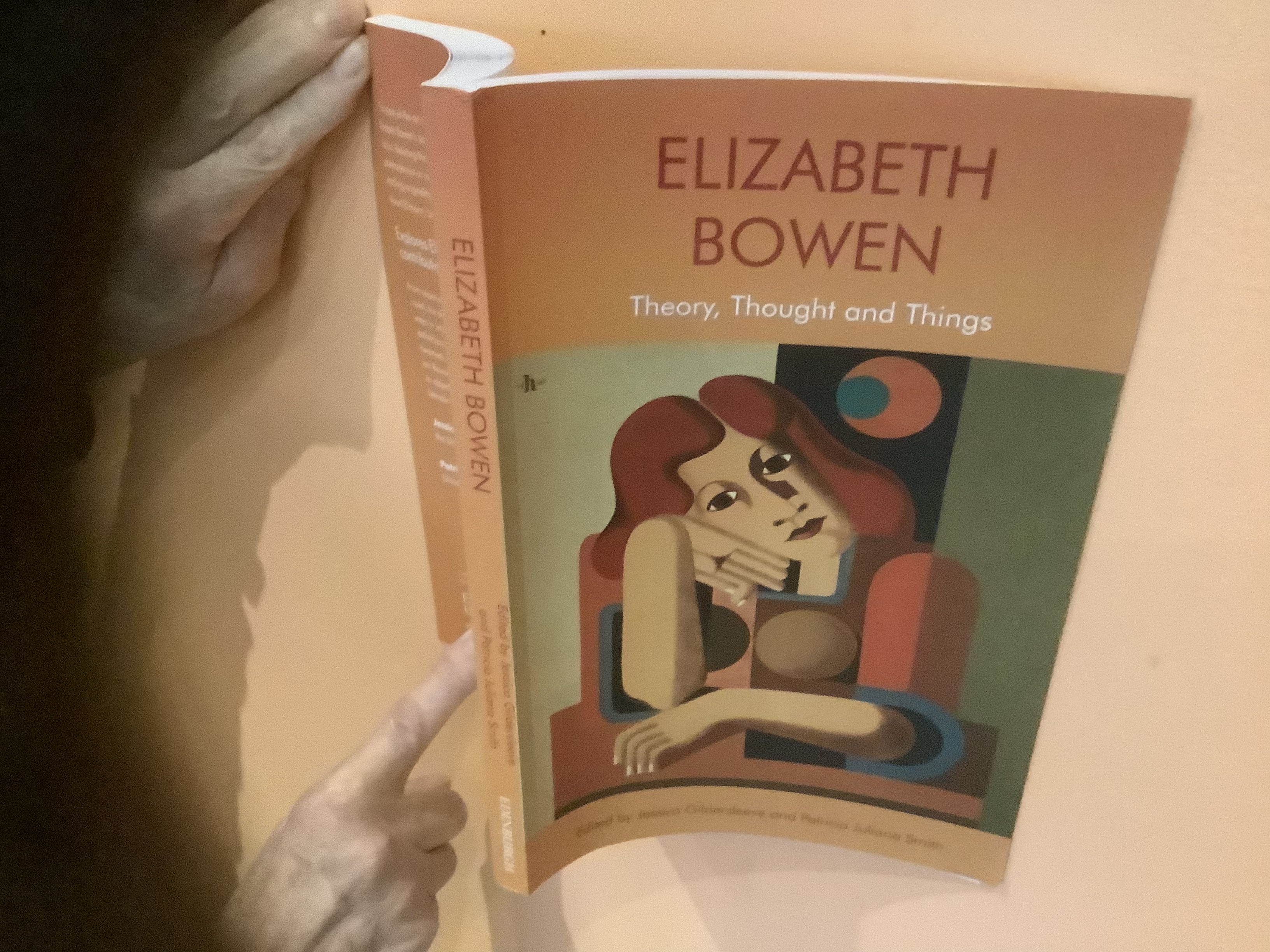
Edinburgh University Press 2019
Edited by Jessica Gildersleeve and Patricia Juliana Smith
My Elizabeth Bowen website: https://elizabethbowensite.wordpress.com
My two widely published articles about her work: https://elizabethbowensite.wordpress.com/the-drogulus-article/ and https://elizabethbowensite.wordpress.com/another-100-best-books-eb-article/
And of THE SHADOWY THIRD: https://dflewisreviews.wordpress.com/2021/03/02/the-shadowy-third-julia-parry/
And THE DEMON LOVER: https://dflewisreviews.wordpress.com/2021/06/13/28361/
ENCOUNTERS stories: https://dflewisreviews.wordpress.com/2014/12/16/encounters-early-stories-by-elizabeth-bowen/
When I read this book, any of my comments will appear in the comment stream below…

I haven’t really started reading this Bowen book yet, but I relish the chance to do so before long.
But I have noticed that the Introduction starts off with thoughts on her BREAKFAST and I noticed this is one of the few stories of hers I have already written a review about, seven years ago here: https://dflewisreviews.wordpress.com/2014/12/16/encounters-early-stories-by-elizabeth-bowen/#comment-3682, as follows:
Breakfast
“‘Behold, I die daily,’ thought Mr. Rossiter, entering the breakfast-room. He saw the family in silhouette against the windows; the windows looked out into a garden closed darkly in upon by walls. There were so many of the family it seemed as though they must have multiplied during the night; their flesh gleamed pinkly in the cold northern light and they were always moving. Often, like the weary shepherd, he could have prayed them to keep still that he might count them.”
…as we do, as we try to count the many different things happening in this otherwise static realistic tableau of a breakfast, a feast of gossip, a recounting of last night’s dream (worth a whole surreal story in itself), the loss of collar studs, relationships pregnant with innuendo, plus much more – and that passage I quote above is the start of this amazing story and, alone, it takes up nearly half a page of a 12 page story. Why else ‘amazing’, you ask? Well, be there, and see. The language, paradoxically fractured yet smooth, meticulously picks images out of a pixelated painting of deeper and deeper things that you begin to feel and, yes, want to count or itemise. Plus a jabbing Ivy Compton-Burnettish dialogue. Eventually, you, too, leave this breakfast room, along with its characters, dissatisfied but equally full up.
***
HAVING JUST happened to finish today my exhaustive gestalt real-time reviewing of the Robert Aickman Fiction canon by means of re-reading it, here: https://dflewisreviews.wordpress.com/2021/10/05/the-canonisation-of-an-author/ (Aickman published Bowen in his Fontana Anthologies and he considered her to be the greatest exponent of the ghost story, I think he wrote in the intro),…
WELL, I fully intend to do the same service to Bowen stories!
I guess, ironically, my job with Aickman turned out to be a casting of a weird genre writer as a great literary one, which he is surely is, given the evidence.
It is going to be vice versa with Bowen! https://dflewisreviews.wordpress.com/2021/10/05/the-collected-stories-of-elizabeth-bowen/
I continue to read this appropriately Bowen-difficult book, and inasfar as I understand it unacademically, it bears out much of what I have always thought instinctively about her work.
— renée c. hoogland
Seems relevant to my preternatural or fearless faith in fiction that has been engendered by gestalt real-time reviewing as an instinctive or naive process…
Pingback: Elizabeth Bowen, Katherine Mansfield, William Trevor & Robert Aickman | The Des Lewis Gestalt Real-Time Reviews Edit
Having read and reviewed THE DOLT’S TALE yesterday here: https://elizabethbowensite.wordpress.com/my-huge-bowen-story-review-2/,
I looked up the story’s title in the index of this book (there not being much at all on-line about this amazing story) and was truly fascinated by Laurie Johnson’s substantial take on it!
The Telephone in Bowen as an embodied Drogulus?
Bowen as Unromantic Princess.
This book tells me too much, this book tells me too little, tells me things I had not observed before, but I can tell this book new things, too, about her work.
Both humble and bumptious, too abstruse yet with straightforward moments, myself objectified as well as the book itself, and I feel this book is an object to fetishise, but never to finish. Zeno’s Paradox and half Aickman being example factors that need factoring in more than it does. The theory is that we never get more than halfway through it, by dint of the things we thought we’d skipped over.